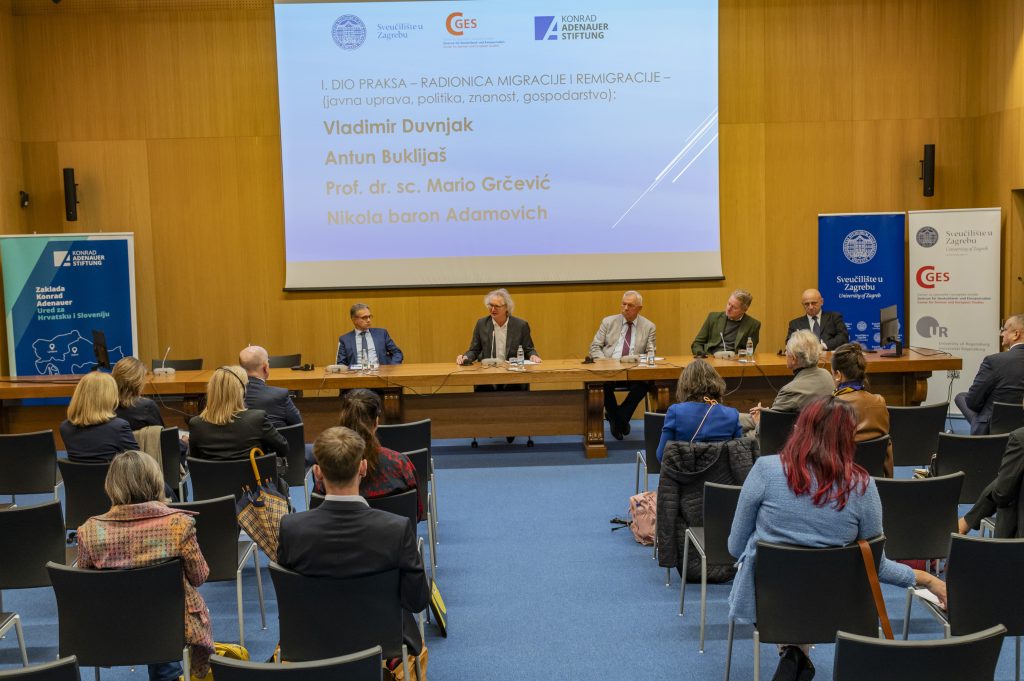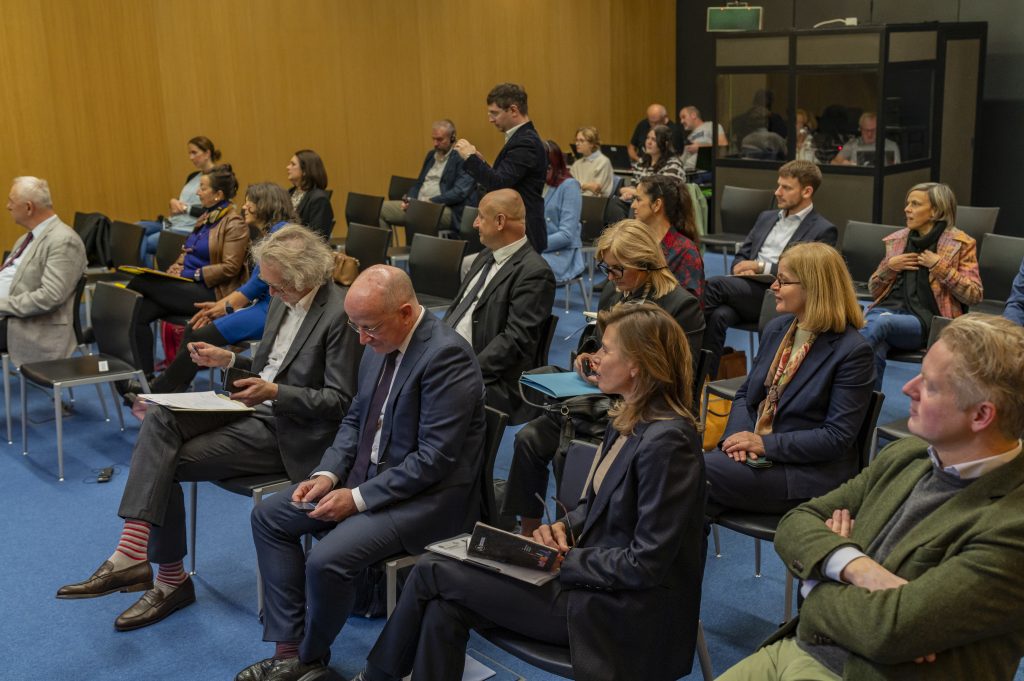Project cooperation
Konrad Adenauer Foundation Zagreb – Center for German and European Studies CGES
in cooperation with
Leibniz Institute for East and Southeast European Studies, Regensburg – Institut društvenih znanosti Ivo Pilar, Zagreb
From Croatia to Germany and back? Transnational migration and social change
Project management: prof. dr. sc. Siegfried Gehrmann (University of Zagreb CGES), Prof. Dr. Ulf Brunnbauer (Leibniz Institute), Dr. Carolin Hornstein-Tomić (Ivo Pilar)
Project coordination: Prof. Dr. sc. Siegfried Gehrmann (CGES)
Project languages: German, Croatian – the conference will be simultaneously interpreted
The high level of immigration from Croatia to Germany has a long history and goes back at least as far as the Second World War. This raises an important question: how were these experiences and the knowledge about the country of destination or origin passed on from generation to generation? At the same time, migration is often not a completed process. Many migrants from Croatia plan to return in the course of their lives and therefore maintain close ties with their homeland; sometimes the second or third generation discovers that their knowledge of the “old homeland” can be an advantage if they want to open a business there, for example. With the cultural practices and memories they have brought with them, migrants and their descendants have contributed greatly to the transformation of German society, indeed to its modernization. At the same time, the question is whether there are ways to strengthen the positive effects of migration for the country of emigration, which experiences emigration primarily as a loss of human capital.
Against this background, the project examines the transnational migration process between Croatia and Germany using exemplary questions and selected regions. The focus is on migrants and their descendants.
The question is:
- how their actions have changed both German and Croatian society since the 1960s,
- how this has transformed their own cultural identities, values and plans for the future
- and what challenges remigrants face when they return to Croatia and build a new life here.
Within the time limit of one year, the project is limited to four aspects:
- Motives for migration and remigration
- Economic and social repercussions on the country of origin and the country of departure
- Transnational living environments and the transformation of cultural identities and values
- Remigration and integration in the home country: opportunities and challenges
Integrated into the conference is a workshop with practitioners and remigrants who will report on their experiences of migration and remigration.
Planned for 2024
- a two-day international conference and workshop on 17/18 Oct. 2024: at the University of Zagreb on the topic From Croatia to Germany and back? Transnational migration and social change as well as a workshop in which remigrants from different professional fields (business, science, administration) and different time periods will discuss their migration and remigration experiences with experts from science and business.
- Publication of the project results in German and Croatian


